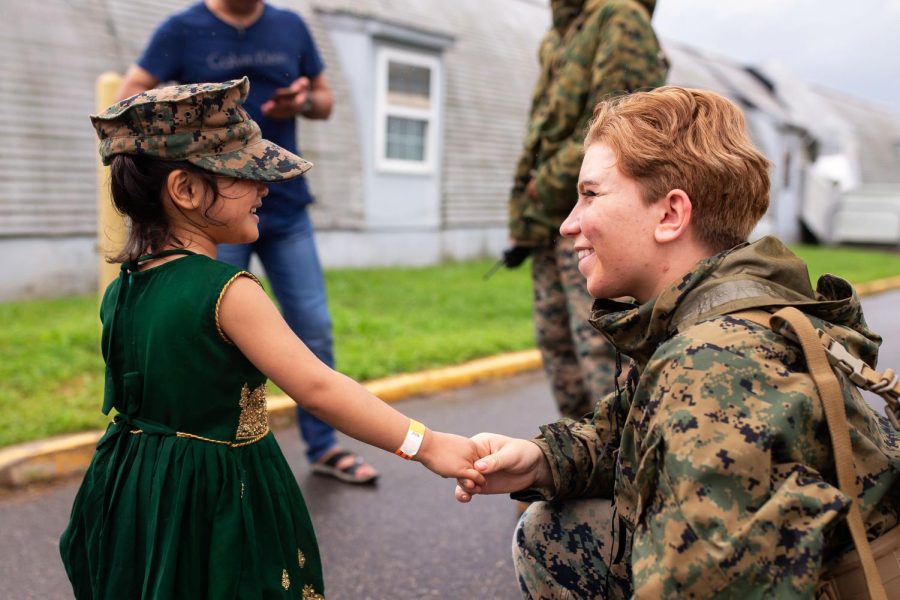Operation Allies Welcome
April 25, 2022
The evacuation from Afghanistan in August of 2021 and its remarkable efforts still reverberate today in every corner of the nation. The initiative to save our Afghani allies still operates today to ensure their transition into American society. Operation Allies Welcome is now in the midst of a new logistical problem: the transfer of refugees from their temporary homes overseas to their permanent homes here in the United States.
The evacuation of Afghanistan was a monumental task for both military and civilian organizations alike. The challenge of rescuing both American personnel as well as their Afghani counterparts culminated in the Kabul Airlift–a massive undertaking and largest operation of its nature since the Berlin Airlift.Two hundred aircraft, consisting mostly of C-17 Globemasters, flew over ninety flights to evacuate over seventy-nine thousand people. The Averting Loss of Life and Injury by Expediting SIVs Act was passed with bipartisan support to swiftly and decisively organize the evacuation of an expanded base of refugees. The ALLIES Act lifted many of the restrictions on temporary visas, giving hope to the thousands of Afghani civilians seeking to flee from the Taliban regime.
Under the oversight of secretary Bob Fenton, the seventy-six thousand refugees were housed in military bases across the U.S. and beyond, including Virginia’s very own Fort Pickett. “Task Force Pickett” processed ten-thousand six-hundred Afghani refugees to their new homes in the Virginia region. Furthermore, the federal government negotiated with the National Conference Center to designate Lansdowne, VA into another temporary housing facility. For the past month and a half, small groups of Afghani refugees have been shuttled into Loudoun and meticulously vetted, checked, and cleared before being disseminated around the region.
Operation Allies Welcome’s screening process includes four-hundred personnel from the Department of Homeland Security, Department of Defense, Federal Bureau of Investigation, National Counterterrorism Center, and many other organizations to thoroughly vet refugees using biometric and biographic data to ensure all incoming individuals are safe to settle in the U.S. During the vetting process, applicants are monitored for both health and security in accordance with federal COVID-19 measures.
In conjunction with the federal government works the nonprofit Welcome.US, which can be donated to here. Furthermore, nonprofits such as the Bethany Foundation coordinate volunteers to assist relocation facilities across the country. If you wish to help our allies find their home here in the States, be sure to check out your local nonprofits to contribute or volunteer!


